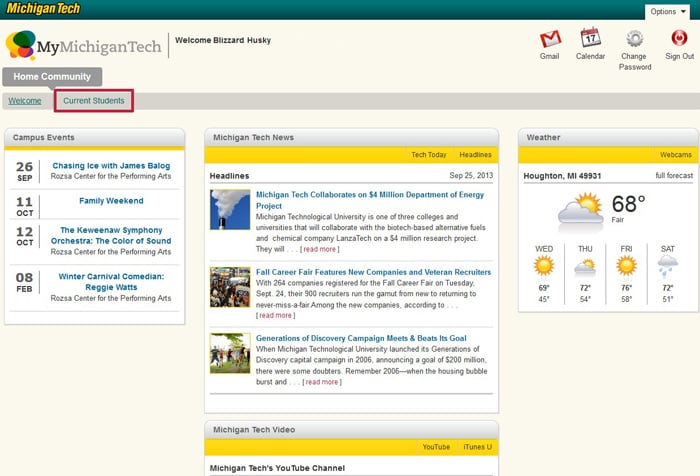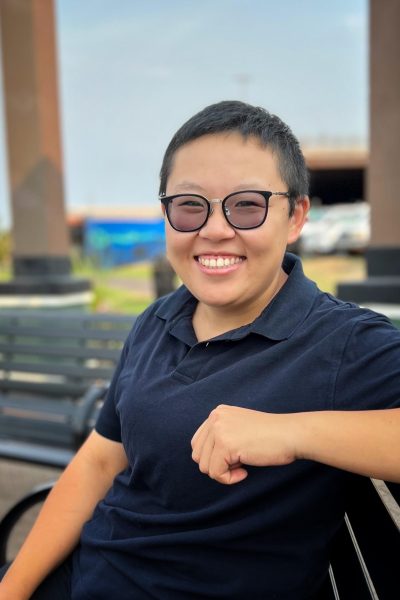MyMichiganTech is a personalized website that will allow students to quickly and easily see their current student status. You will also be able to get direct access to Gmail, Canvas, banweb and more from MyMichiganTech – think of this as the first place to go every morning! The Graduate School is pleased to introduce it to you and looks forward to receiving your feedback on how we can improve it in the future.
Navigate to MyMichiganTech.mtu.edu and log in with your Username and ISO Password (just like Canvas, e-mail, or any other campus service)

The homepage has news, events, and weather. Click on the “Current Students” tab (outlined in a red box below) to show information about your current status. Depending on the services you use at the University, such as financial aid, or campus housing, different options will appear.

